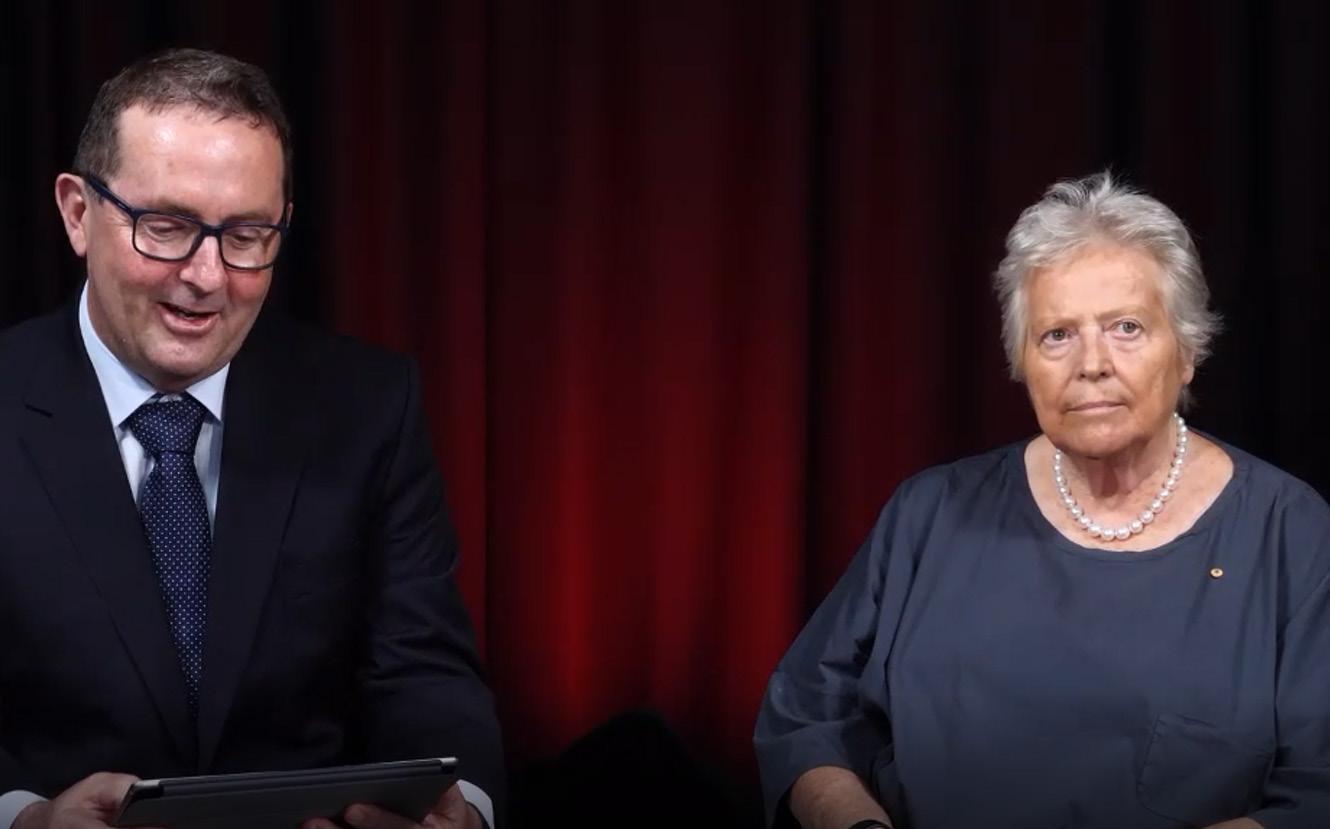
4 minute read
Economic policy amid disruption
Dr Kerry Schott AO, Chair of the Energy Board and Director for NBN addresses the current economic policy in the electricity sector and calls for the adoption of an emissions trading scheme.
Written by Karen Ho
Advertisement
On Thursday 26 November, Dr Kerry Schott AO delivered the 10th annual Warren Hogan Memorial Lecture. The public lecture commemorates Professor Warren Pat Hogan (1929–2009), a distinguished economist and Professor of Economics at the University of Sydney from 1968 to 1998.The Warren Hogan Memorial Lecture aims to further the dialogue on economic analysis and public policy issues.
The changing nature of society
Kerry began the lecture by acknowledging the shifting social climate that was brewing when Warren Hogan joined the University in the late 1960’s. “There were anti-Vietnam war protests going on - frequently violent...The Female Eunuch by Germaine Greer was bestseller in bookshops, feminism was gaining traction…and the rugby union people were starting to recognise that playing games against South Africa with apartheid in full swing was becoming politically questionable…it was an area and era where an enormous amount of social change was happening, particularly in Australia.”
In delving into Warren’s former policy work, Kerry began reflecting on the challenging nature of enacting policy. “It’s amazing how much the world has moved on, and it’s amazing in economic policy, the number of areas in which nothing much seems to have changed,” Kerry said. “It made me wonder, what is it about economic policy that sometimes the best policies get implemented and implemented quickly, not with huge fuss, and sometimes you find yourself in an area where policy seems quite intractable.” As the current Chair of the Energy Board and Director of NBN, Kerry has found herself experiencing this tension in the climate change debate.
For Kerry, both the problem and solution are clear. In her address, Kerry advocated for decreasing carbon emissions and the implementation of an emissions trading scheme. “If we did have an emissions trading scheme, it would make market solutions much more efficient,” Kerry said. “[With an emissions target], you can steadily start moving in the appropriate direction…but for whatever reason, implementation has become impossible.”
The alternative solution
In the case where Australia has not been able to implement a carbon emissions scheme, the alternative has been to adopt a command and control method – in this case, incentivising through subsidies for renewables. The policy has worked effectively in changing composition of energy generation in what Kerry called “a phenomenal exercise in de-carbonisation.” The increase in quantities of solar and wind has been largely beneficial in reducing both retail and wholesale prices of energy.
“We are running an electricity system that is currently about 26% renewables. The operator thinks that we can get that up to 75%. Some states are running at much higher levels than the average 26%.” Kerry was optimistic the trend towards renewables would continue to grow. “My expectation is that in the renewables area, by the time we get to 2030, we’ll be running close to 40% and by the time we get to 2040 with coal plants retiring, we will hit 75% which is about the maximum that we can reach.”
Australia is also leading the world in small-scale solar installations such as rooftop solar. Again, it has been a command-and-control method by using subsidies – with some surprising results. “It’s amazing to think that the panels on everybody’s home now are providing 5% of the total electricity needed [in Australia],” Kerry said. “We are anticipating that in the next 5 years they will provide close to 10%.”
While the route of providing subsidies has been effective, Kerry highlighted that it does come at a heavy cost to taxpayers who fund the schemes. In addition, without an emissions target, there is also no goal for Australia to collectively aim towards. When asked why the carbon emission trading scheme is seen as politically unpalatable, Kerry admits implementing policy will always have its challenges. “The only thing you can do is try to persuade people of the right thing to do. There are almost always winners and losers and of course, losers are noisier than winners,” she said.
Reasons to be optimistic
Kerry believes that there is a role of all of us to play in tackling climate change. She advocated for further funding for research conducted by universities. Already there have been significant technological advancements in solar panels and batteries, resulting in drastically reduced costs. Universities are also developing hydrogen in large quantities – a task that takes an enormous amount of energy to do commercially.
Kerry is optimistic about the changes that have occurred in the electricity sector with the sector expected to meet their share of the Paris Agreement. However, there is still more to be done. “What we need in climate change, all together, is to get emissions down in transport and in agriculture.” Kerry hopes that these industries will adopt an emissions trading scheme but if not, follow the alternative path in ways that progress can be made.
Action on climate change is a collective effort and our values and attitudes have, and will, continue to change. The lecture and occasion were a reminder that with many movements, it begins by listening to those with the quieter voices, asking us to do the right thing that is needed more than listening to those who speak the loudest.
Image: Professor Garry Barrett presenting the Q&A with Dr Kerry Schott at the 2020 Warren Hogan Memorial Lecture









